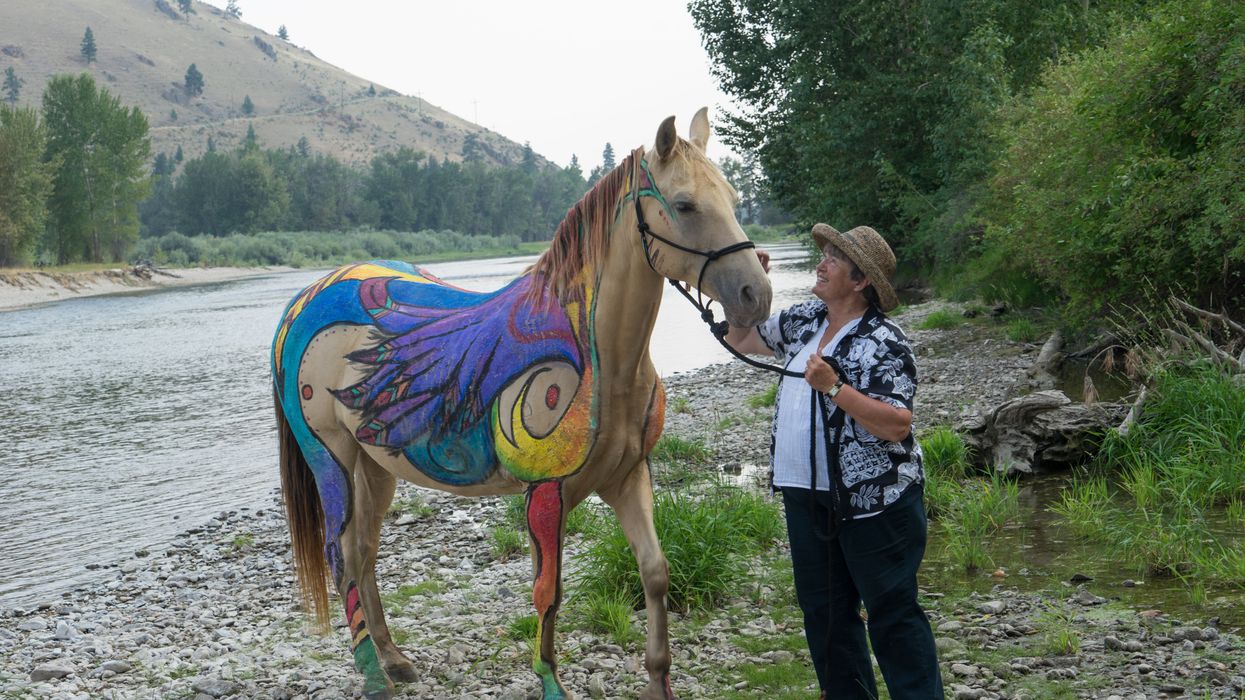The Aspen Institute’s Weave: The Social Fabric Project tackles the problem of broken trust that has left Americans divided, lonely, and in social gridlock. Weave connects and invests in grassroots leaders stepping up to weave a new, inclusive social fabric where they live. This is the third in an ongoing series telling the stories of community weavers from across the country.
Skoler is communications director for Weave: The Social Fabric Project.
SuzAnne Miller runs a Montana guest ranch that has become “home” for people across the world. Most have never visited in person. They live there thanks to webcams, microphones, live chats and community sharing.
Miller doesn’t use technology to create a virtual place that is artificial. She is using it to let people who need community share a real place and connect deeply through it. Her work started simply enough.
In 2011, University of Montana researchers approached her about installing a web camera at her horse ranch in Lolo to study the behavior of ospreys. She accepted and by the following year, hundreds of thousands were watching. When the ospreys left the nest and Miller turned the camera off, people started calling and emailing to ask her to keep the camera on.
“At first I didn’t get it,” says Miller. “I thought, ‘Get a life! What do you mean you want to watch my ranch?’” She reluctantly left the camera on and went on with her life. And then, she fell ill.
She became home-bound for six months. For the first time, she looked at the livestream and understood why it meant so much to so many people. “When your life is confined to four walls, having a portal to the natural world, where lots of things are happening and where you can talk to real people, it's very powerful.”
People who had lost mobility or felt isolated where they lived were visiting the ranch daily and talking with each other about it on social media. They saw the ranch as their community.
So Miller and her husband worked with them to expand the experience. They put in more cameras and created Days at Dunrovin, a website where folks can chat, volunteer to become camera operators and interact with staff at the ranch through a two-way microphone system. They added an $8-per-month paywall to support the technology and keep trolls from crashing the conversations.
For Diane Hoffman of Kenneth Square, Pa., the ranch was a safe place to deal with the death of her husband. “It’s a place where it's calm, nobody is fighting, and where people are nice to each other. It was the perfect place for me to rejoin the world.” Online guests have visited in person and some have asked if it could be a final resting place when they die. Miller’s work doesn’t fit the usual idea that weaving is local, done mainly in person. Yet the relationships and trust in Dunrovin’s community show people are weaving lasting connections. Miller, a retired researcher, surveyed the members and found that Days at Dunrovin offers emotional and mental health benefits very similar to those of a close physical community.
You can see the ranch and learn more about Miller’s work in this six-minute Montana PBS video. Miller is part of the Weave Speakers Bureau. If you are interested in bringing her or any of our speakers to your community, you can make a request here.
This story first appeared in Weave’s weekly newsletter.




















Trump & Hegseth gave Mark Kelly a huge 2028 gift